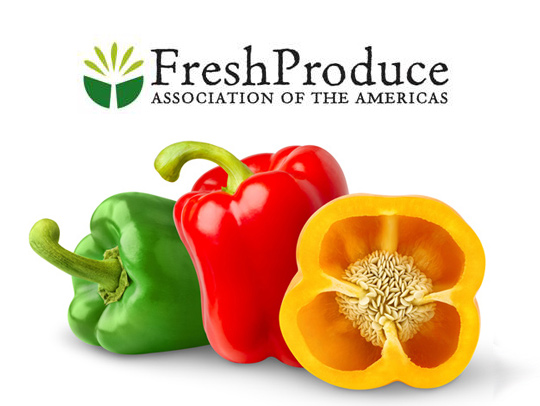USTR Hearings on Seasonal Produce: Looking Beyond the Rhetoric to the Facts -FPAA
August 14, 2020 | 4 min to read

Nogales, AZ— Without providing evidence to back up their claims, Southeast produce growers insisted the US invoke rarely-used Section 301 National Security protections against Mexican imported produce. This would increase grocery costs for Americans, and potentially instigate a trade war with Mexico just weeks after the historic USMCA took effect, according to the Fresh Produce Association of the Americas.
Consumers would pay more for strawberries, blueberries, bell peppers, tomatoes, sweet corn and watermelon if tariffs or quotas are put on these items through a 301 trade action as requested today by the Florida Fruit & Vegetable Association.
Throughout the Aug. 13 virtual hearing, Southeast Congressmen and growers repeatedly invoked phrases like “unfair subsidies,” “unfair trade-distorting practices,” “national security,” and “unfair labor,” without providing reasonable evidence or context. Despite repeating the inflammatory phrases over and over, Florida and Georgia speakers did not present concrete, verifiable examples of their claims. Repeating the claims enough times does not make the claims true.
Let’s take a closer look at some of the claims.
Claim: Mexico uses unfair subsidies.
- Mexico has consistently honored trade agreements, including about the use of subsidies to their own industries, research shows. As signatories to WTO, the U.S. and Mexico agreed not to surpass certain levels of agriculture subsidies, and, so far, both have honored that commitment. And, according to a recent University of Arizona analysis, since 1995, the U.S. has used up to 41% of its allowable subsidies, while Mexico has averaged just 2%. The analysis did not include the recent $28 billion in aid to U.S. farmers in light of ongoing U.S. trade tensions with major export markets including China, which could put the U.S. above WTO-allowed limits for trade subsidies.
Even USDA’s own analysis of recent subsidy programs in Mexico show how insignificant the investments are compared to U.S. agriculture. Furthermore, these programs focus on corn, wheat, livestock, milk, dried beans, and other grain commodities for the small and medium size growers in the poorest regions of the country.
Claim: Mexico has specifically tried to put Southeast growers out of business
- Importations of fruits and vegetables from Mexico have not damaged the market prospects of the Florida and Georgia growers, despite the claims of Southeastern universities. Indeed, U.S. Secretary of Agriculture and former Governor of Georgia Sonny Perdue stated that a University of Georgia Policy Brief on the impact of the
USMCA on Georgian’s small fruit and vegetable industries was “flat wrong” where “researchers came up with imagined scenarios in which they say a set of fruit and vegetable farmers would be vulnerable to competition.”
Claim: America wins with Section 301 National Security Trade Remedies
- Using this rarely invoked trade law would impose costly tariffs on seasonal produce, would raise consumer prices, and would launch numerous and unending “tit for tat” trade wars that could imperil more than $40 billion in US agricultural exports to Mexico.
Claim: The US must change its trade law
- Florida representatives promoted Marco Rubio’s Defending Domestic Produce
Production Act. Gary Clyde Hufbuaer of the Peterson Institute for International Economics recently wrote that the bill might as well be called the “Household Pickpocket Act” because it would raise prices dramatically for American consumers.
Claim: Mexico has an unfair labor advantage
- One of the key items negotiated in the USMCA was labor accountability. Mexico has changed its law in response, and the USMCA contains dispute resolution mechanisms for labor provisions.
- End –
About the Fresh Produce Association of the Americas:
Founded in 1944, the Fresh Produce Association of the Americas (FPAA) is a nonprofit trade association headquartered in Nogales, Arizona, that represents over 120 U.S. member companies involved in importing and marketing fresh fruits and vegetables grown in Mexico and distributed across North America and the world.
